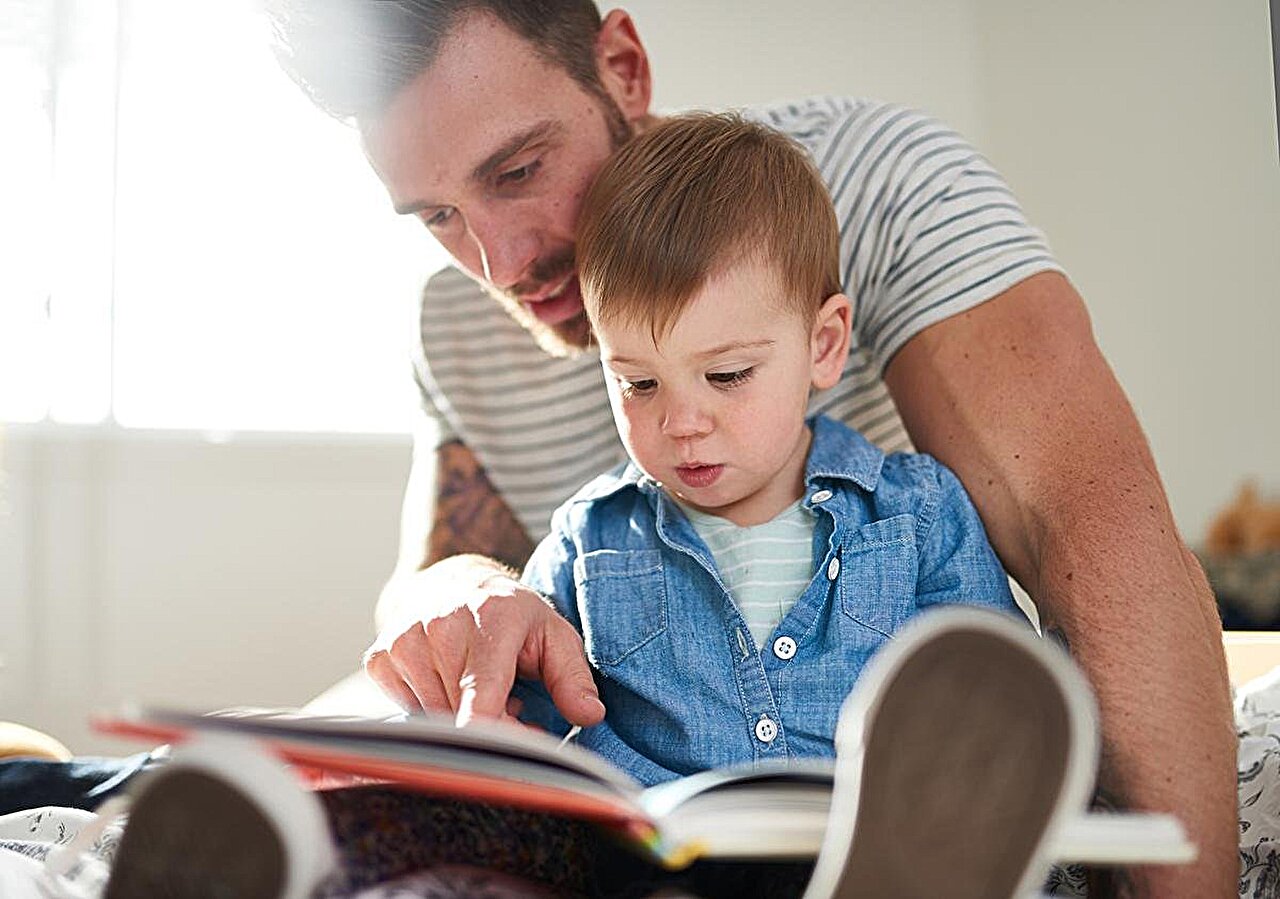
Sharing a book with your baby will build her vocabulary fast, but time with screens likely won’t, Norwegian researchers report.
Their new study on shared reading and vocabulary size dovetails with a new policy statement from the American Academy of Pediatrics that urges parents to read books to their little ones.
A team at the University of Oslo asked parents of 1,442 Norwegian 1- and 2-year-olds how many words their toddlers said or understood. Parents also reported how often they read to their children and how much screen time the youngsters had each day.
The upshot: 1- and 2-year-olds who were frequently read to had bigger vocabularies than their peers, while vocabulary size shrank with a rising level of screen time among 2-year-olds. Researchers saw no link between screen time and 1-year-olds’ vocabulary.
The findings were published in the Journal of Child Language.
“These results demonstrate an association between activities and language development already in the early years of a child’s life and support general recommendations to read more and perhaps reduce screen time for young children,” said first author Audun Rosslund, a doctoral research fellow at the University of Oslo in Norway.
The study doesn’t prove books beat screen time when it comes to vocabulary building. It only shows an association between language development and shared reading or screen time.
But researchers suspect that two aspects of shared reading contribute to children’s language development. One is exposure to the diversity of words contained in children’s books, and the other is the interaction between parent and child.
They note that too much screen time may limit chances for more interactive activities that foster language development.
Rosslund’s team also found that the link between shared reading and vocabulary development in 1-year-olds was even stronger in families where Mom had less formal education. They said this holds promise for interventions to reduce inequalities in early learning.
“Moving forward, we hope researchers will also investigate the possible impact of the quality of screen time on language development,” Rosslund said in a university news release.
More information:
This Reading Mama has tips to help parents recognize signs that a child is ready to read.
Rosslund A, et al. Associations between shared book reading, daily screen time and infants’ vocabulary size. Journal of Child Language. (2024) DOI: 10.1017/S0305000924000291
Copyright © 2024 HealthDay. All rights reserved.
Citation:
Reading to your 1- and 2-year old boosts their vocabulary, study finds (2024, October 3)
retrieved 6 October 2024
from https://medicalxpress.com/news/2024-10-year-boosts-vocabulary.html
This document is subject to copyright. Apart from any fair dealing for the purpose of private study or research, no
part may be reproduced without the written permission. The content is provided for information purposes only.

